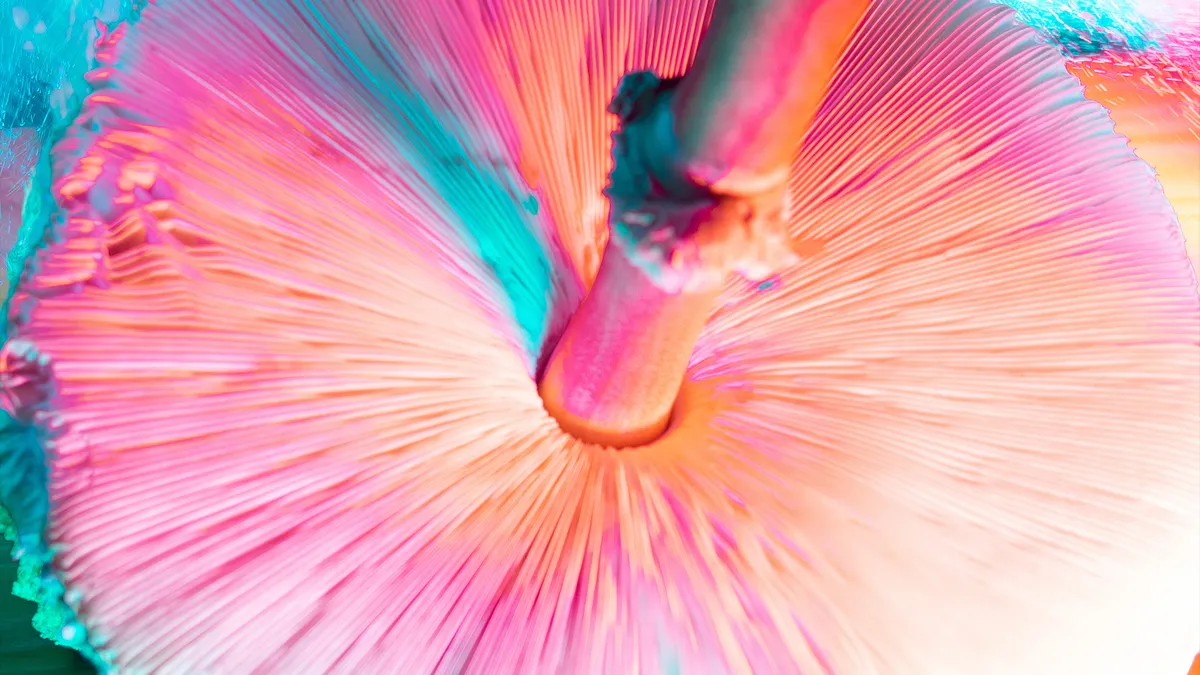
Psilocybin, the active hallucinogenic compound found in magic mushrooms, has garnered attention for its potential to alleviate depressive episodes in individuals suffering from bipolar disorder. A recent small clinical trial, published on December 6 in the prestigious journal JAMA Psychiatry, suggests that psilocybin may offer relief without the risk of triggering mania or mood swings that are often associated with conventional antidepressants.
The clinical trial focused on 15 participants diagnosed with bipolar II disorder, a variant characterized by prolonged depressive episodes and shorter instances of hypomania—where individuals experience heightened energy and activity levels. In contrast, bipolar I disorder involves severe episodes of depression and full-blown mania, which can lead to risky behaviors and even psychosis.
For this trial, participants ceased their prescribed mood-stabilizing medications for a minimum of two weeks before receiving a single dose of synthetic psilocybin. All individuals involved were grappling with depressive episodes that were inadequately managed by their existing treatments. Alongside the psilocybin administration, participants engaged in talk therapy before, during, and after the intervention.
Three weeks following treatment, all 15 participants reported improvements in their depressive symptoms, assessed through a standardized test. Remarkably, twelve participants exhibited at least a 50% reduction in their scores, indicating a significant decrease in depressive symptoms. Additionally, 11 participants met the criteria for remission from their depressive episodes, with many achieving this status within a week after receiving the psilocybin dose.
By the twelve-week mark post-treatment, 12 participants remained in remission, and importantly, the scores for symptoms of hypomania and mania showed no significant changes. This is particularly noteworthy, as common antidepressants, such as selective serotonin reuptake inhibitors, often exacerbate mood instability and may trigger manic episodes in individuals with bipolar disorder.
The authors of the study noted that participants exhibited strong and lasting antidepressant effects without an increase in mood instability or risk of suicidality. This finding underscores the potential of psilocybin as a viable treatment option for individuals with bipolar II disorder. However, the authors also cautioned against generalizing these results to those with bipolar I disorder, who may experience heightened risks if treated with psilocybin.
This trial marks a significant advancement in the exploration of psilocybin for treating bipolar disorder, particularly as previous studies frequently excluded individuals with personal or familial histories of bipolar disorder due to concerns that psychedelics could incite mania. In a related commentary published in JAMA Psychiatry, researchers from the Johns Hopkins Center for Psychedelic and Consciousness Research and Columbia University Medical Center emphasized that the safety profile observed in this study warrants further investigation through larger randomized clinical trials.
Despite the promising results, the trial faced several limitations. The small participant size and the moderate severity of their symptoms are important considerations. Additionally, the study lacked a control group receiving a placebo, making it difficult to assess the effectiveness of psilocybin compared to talk therapy alone. There remain numerous unknowns regarding the long-term effects and relapse rates associated with psilocybin treatment.
One participant who initially achieved remission later experienced a relapse, raising questions about the stability of the treatment's effects. While this trial represents a crucial first step, both the trial organizers and commentators agree that extensive further research is essential to fully understand the implications of psilocybin for those with bipolar disorder.